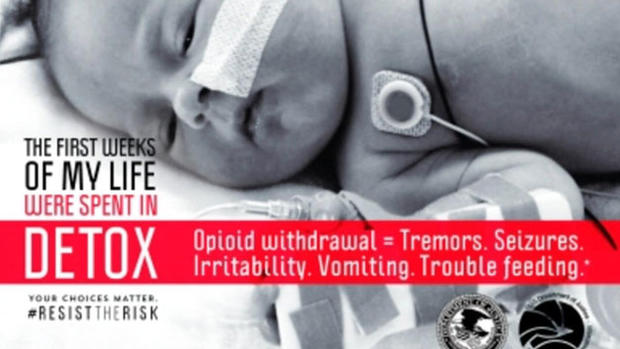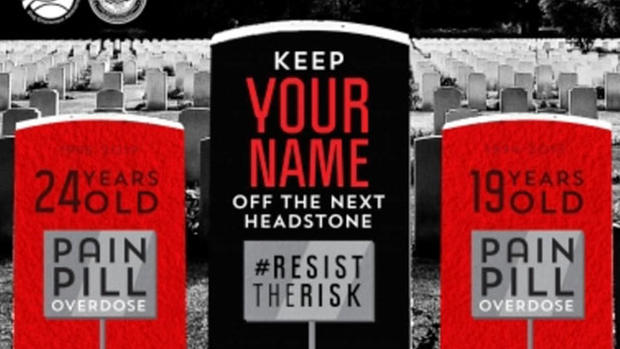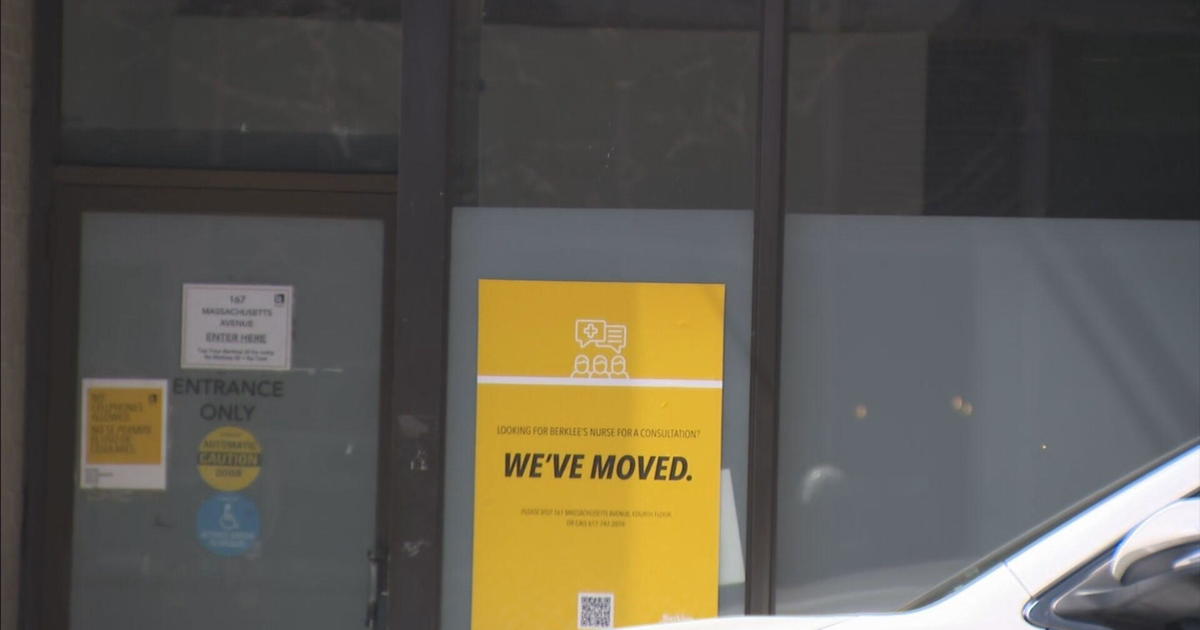Mass. AG Expresses 'Serious Concerns' Over New Campaign Against Opioids
BOSTON (CBS) -- The Massachusetts Attorney General has written a letter to the state's Acting US Attorney and the MBTA over "serious concerns about the 'Resist the Risk' public awareness campaign."
The "Resist the Risk" effort is a public awareness campaign to prevent the opioid crisis with advertisements on trains and buses statewide. It in features powerful images like a baby in the hospital with the words "the first weeks of my life were spent in detox."
While AG Maura Healey commended the effort to help fight the opioid crisis, she had harsh words for the resulting ads.
"The overwhelming opinion of our partners in the public health and medical communities is that this campaign is stigmatizing, ineffective, and counterproductive to achieving our shared goal in addressing the epidemic."
According to Healey, the image of the infant was "medically inaccurate and one that could result in parents, including pregnant mothers, avoiding important treatment to improve health outcomes for newborn children."
The graphic of the tombstone uses "scare tactics that have proven to be ineffective for changing behaviors or preventing initiation of drug use by youth," said Healey's experts.
Instead, the opioid crisis should be treated as a "public health issue" with efforts that increase education and reduce stigma.
She concluded by saying the advertisements should be dropped until they can "reworked with meaningful input from public health professionals."
A week ago, Boston Medical Center addiction specialist Dr. Richard Saitz brought up similar concerns to WBZ-TV.
"If [addicts] could simply stop drug use and resist the risk they would. They can't, they need help to do so, they need treatment," said Dr. Saitz.
At the time, Acting US Attorney William Weinreb defended the program saying the ads are geared toward informing young people about the dangers of opioids and admitted the controversy the ads sparked were getting the conversation going.
"Our message is directed at a different population, people who are not already addicted, but people who are thinking about using pain pills recreationally," said Weinreb.





